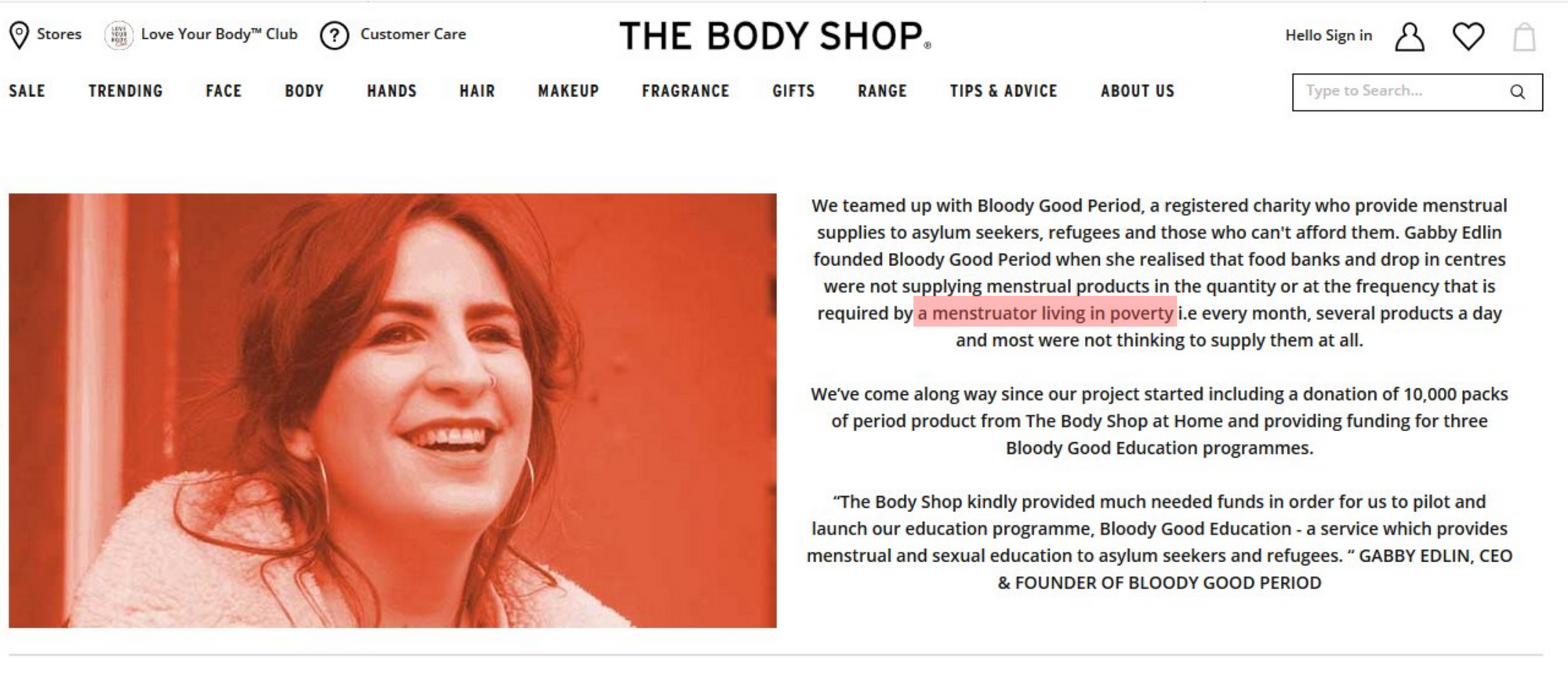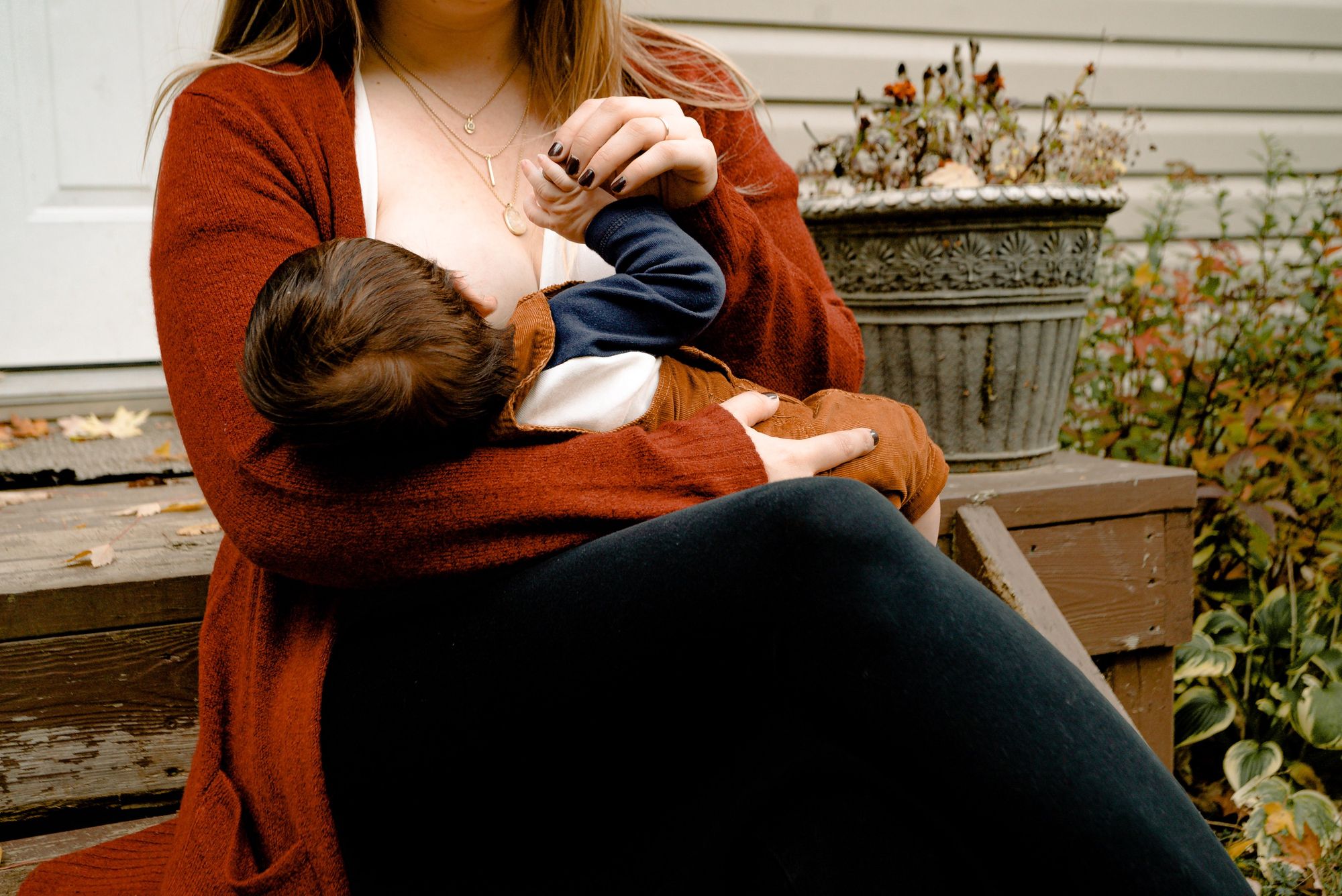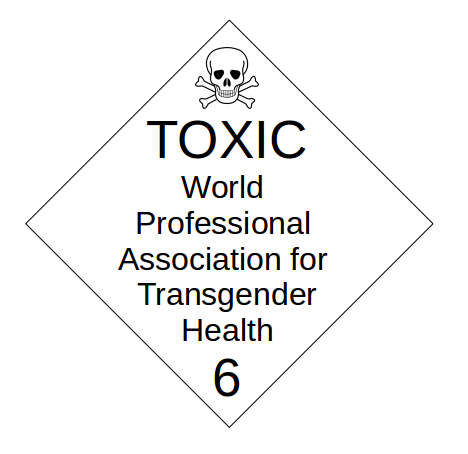"Woman" Is Not a Dirty Word
When we erase the word “woman”, we erase women’s material reality.

The latest round of attacks against Harry Potter’s author, J. K. Rowling, in June 2020, happened because she criticized the use of the phrase “people who menstruate” when referring to women on a piece published by Devex.
Companies like The Body Shop have been calling women “menstruators”.
After J. K. Rowling released an essay explaining her reasons to acknowledge that biological sex is at the root of women’s oppression, the company mocked the author about her confession of being a domestic violence survivor.

This cultural gaslighting is intended to erase the word women from legislation, thus making the sex category “woman” a meaningless word. It is like the word “woman” can’t be spoken anymore, as British journalist Celia Walden asked in her piece for the printed version of the Telegraph, “Who said “woman?”. On the online version of her piece, however, the headline was “Why 'woman' has become the hardest word.”
The word "woman" is not a dirty word. The word women must be used to refer to women. When talking about female issues such as menstruation, pregnancy, abortion, fetal loss, miscarriages, childbirth, breastfeeding, ovaries, tubes, vulva, vaginas, endometriosis, mammal ducts, uterus/wombs, do not reduce women to their reproductive organs or biological functions.
Talk about the girls and women who are homeless and need menstrual pads; women and girls who are in Trump's detention centers lacking pads and health assistance for childbirth; the girls and women living in poverty around the world who are leaving school altogether, skipping classes or unable to attend schools because they don't have menstrual pads; the women in prison who lack menstrual pads and have to resort to using toilet paper or newspaper pieces to cope with menstruation, or are shackled during childbirth. Don't call them "people menstruating”, “people who menstruate”, “menstruators "or" bleeders". Only women and girls, therefore females, the humans born with the female anatomy, can or will menstruate, despite what this New York Times piece says about “men who menstruate” or “women with penises”.



Talk about girls and women who survive the harmful practice of female genital mutilation (FGM) and refer to them as girls and women, not as "people with vaginas / vulva / clitoris". Do not tell survivors that they are “transphobic" for saying “female” in the phrase "female mutilation" or "female genital mutilation". Or worse, don’t tell women that male-born people who identify themselves as women also undergo female genital mutilation when undergoing sexual reassignment surgeries.
Talk about pregnancy, childbirth, and abortion by saying pregnant women when referring to women, never "pregnant people" or "womb havers". Talk about breastfeeding, not about "chestfeeding".
This is what it's come to. I was told I deserved to be brutalized by fgm when I was a child because I dared to say calling a woman "terf" was misogynistic (after being accused of lying about being an fgm survivor). pic.twitter.com/lkJlS5RHH3
— Jana Cornel (@RadfemJana) December 15, 2019
When women are born with or are experiencing health issues or conditions in which they don’t menstruate, or they are going through menopause, they don’t cease to be women. They are women with health conditions that are affecting their female bodies.
When women can’t gestate, for infertility issues such as lack of ovulation, lack of wombs, lack of ovaries, they do not cease to be women. They are women with infertility issues.
When women are unable to breastfeed for health issues or for mastectomies, they do not cease to be women: they are women experiencing breastfeeding issues.
The same is true for all conditions that affect the female reproductive system. Women who saw their breasts growing when they were teenagers and have mastectomies do not cease to be women. They are women who have had mastectomies. To be born in a female body and experience lack of menstruation, or infertility, does not end womanhood. Women don’t cease to be women when they have hysterectomies. They are women who have had hysterectomies.
Women are discriminated for being born in a female body. Even the most natural body functions of a female body are seen as unnatural, dirty, or undesirable. Women in India are having elective hysterectomies because prospective employers won’t allow women toilet breaks to put on pads. Women are being denied jobs for the “risk of getting pregnant”, and prospective employers might deny women maternity leave or a the ability to breastfeed or pump at work because “men can lactate too”. Girls and women are put in period huts for menstruating in countries across the world. They are dying in them.
Women may suffer from obstetric violence. Women may die from miscarriages, ectopic pregnancies or during childbirth. Women who are admitted to hospital for surgeries totally unrelated to their reproductive systems may be getting pelvic exams without their consent while they are unconscious after a surgery or in a coma. These are uniquely female problems, part of oppression as a sex-class.

Women exist. A group of people born in the female sex who identify as boys or men may prefer other terms. But this does not change their biological reality, the issues they will face due to their female reproductive systems, the oppression they will experience because of it. Obscuring language around women’s rights, health, and oppression does not help male-identified females. In only makes it harder to fight for the needs of the largest group of oppressed people on the planet.
It is necessary to reject the idea that the female anatomy does not exist. Because not only does it exist, but women are also discriminated against for being born in female bodies—human bodies born with a female reproductive system, the kind that should produce large gametes. This is the reason why women are discriminated against in patriarchal societies: for our reproductive capacity. If not, why do half of Brazilian women lose their jobs after becoming pregnant, or during maternity leave, or shortly after returning from maternity leave? Why does Brazil still criminalize abortion? Why Venezuelan women may face up to 30 years in prison for abortions or even pregnancy loss?
It’s time to center women and their needs in feminism. The feminist movement was created by women and for women to fight for the political emancipation of women and for the achievement of the female bodily autonomy. We are tired of being erased, dismissed, and disregarded. We don’t need new labels or to change the definition of what a woman is. We need to end women’s oppression, and that can’t be achieved when we can’t define what a woman is and talk about issues that only females have.
Do you want to bring the "gender madness" to an end? Help us write about it! 4W is able to pay our all-female staff and writers thanks to the generous support of our paid monthly subscribers.
Enter your email below to sign in or become a 4W member and join the conversation.
(Already did this? Try refreshing the page!)





Comments